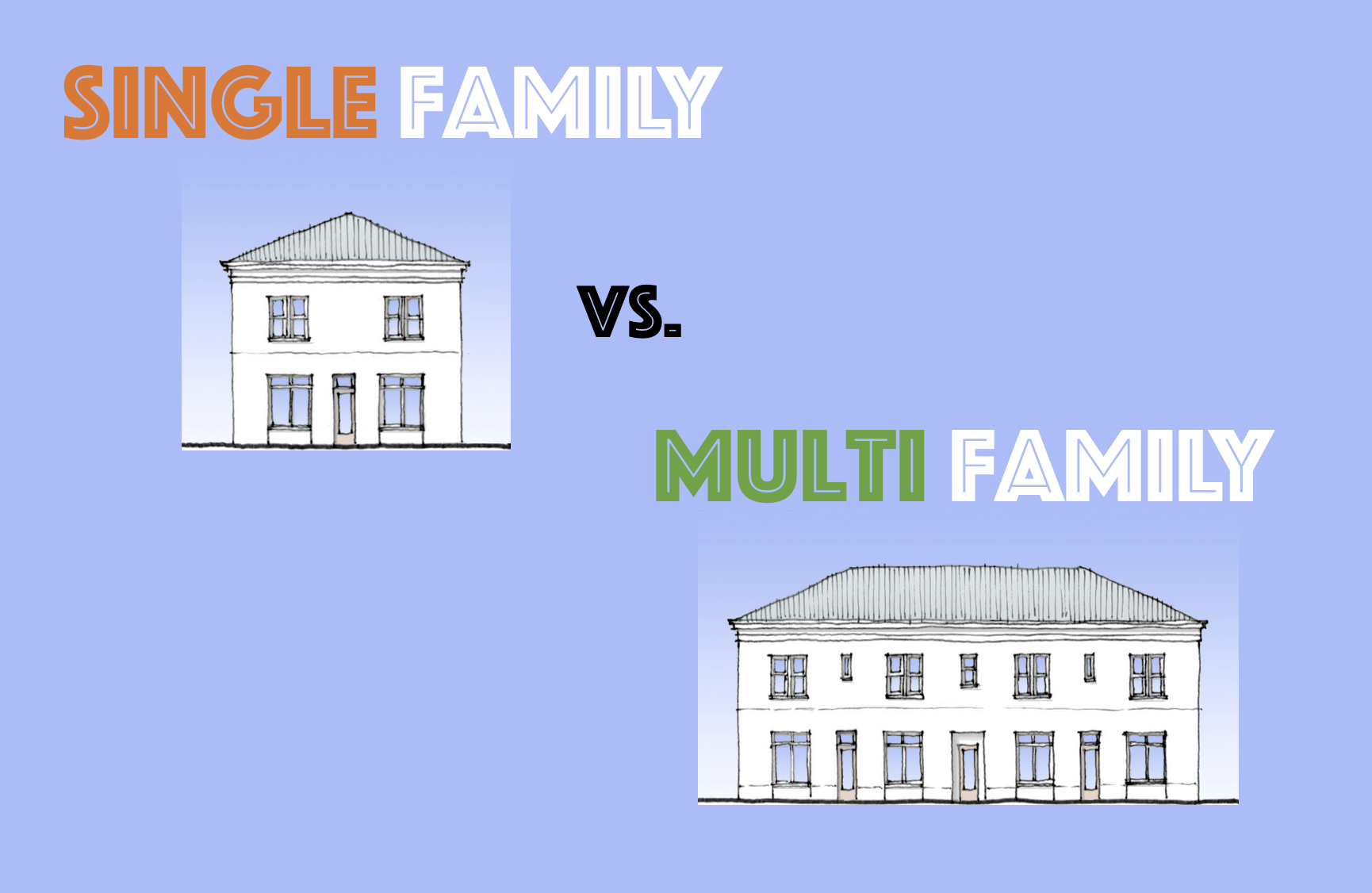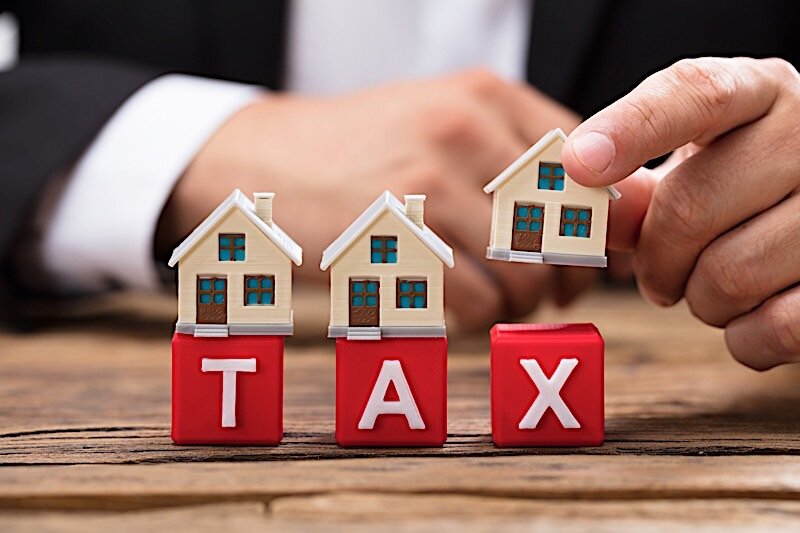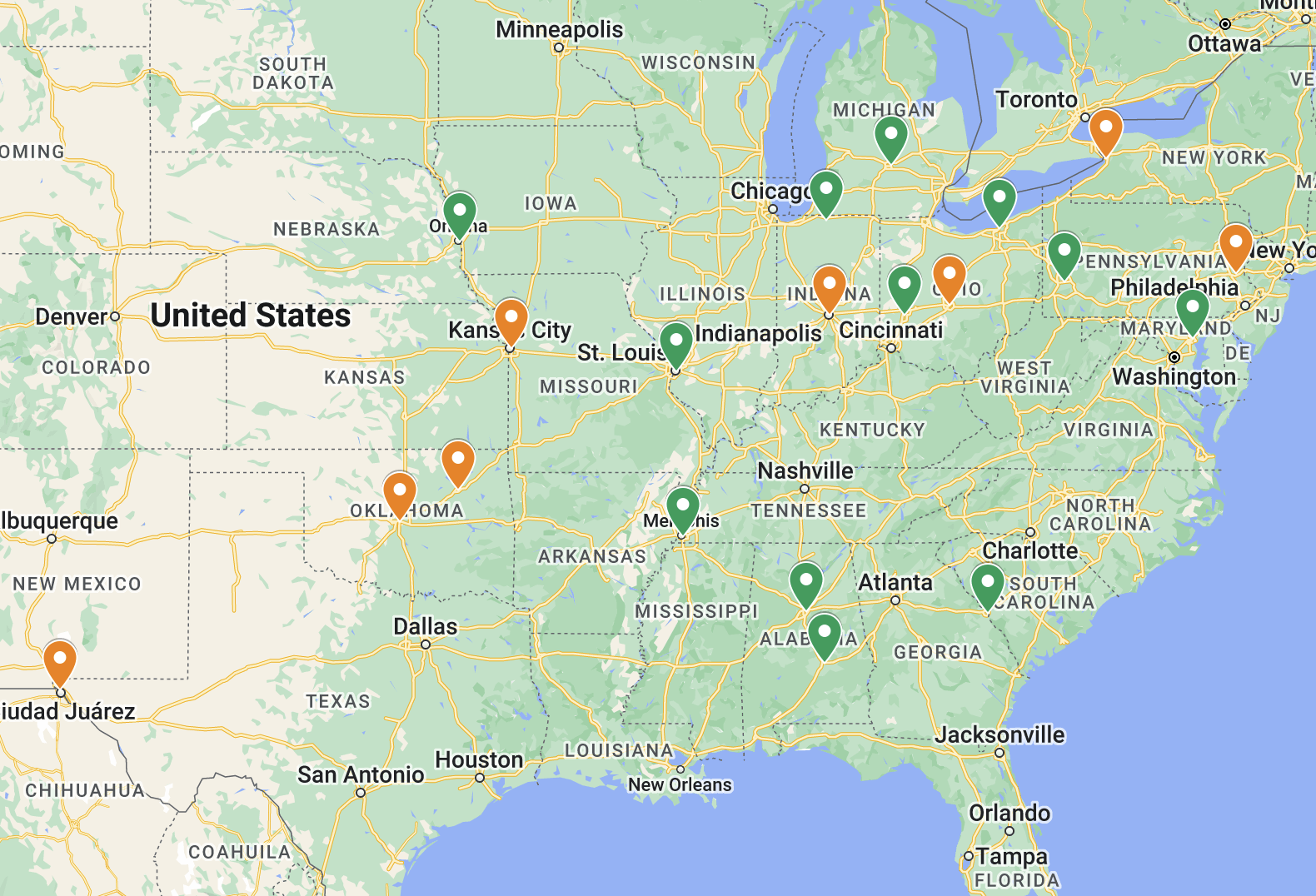Why Rental Properties Are the Best Investment You Can Make
Last updated: 2024
I’ve done the math, and it’s clear: of all the available ways to invest your money passively, rental properties are simply the best.
But wait, you’re thinking – better than STOCKS? The stock market has the best long-term returns, right? Aren’t we just supposed to invest in market index funds and sit tight?
Yes, it’s better than stocks, as I’ll discuss in detail below. (And in even more detail in my full article comparing the returns of stocks vs. rental properties.) But first, let’s define the terms of the discussion.
First, I’m only talking about passive investments. This excludes active real estate strategies such as house-flipping (buy it, rehab it, sell it), BRRRR (buy it, rehab it, rent it, refinance it, repeat) and short-term rentals (i.e. AirBNB). It also excludes the entire world of business ownership & entrepreneurship, which can offer great returns but is, by definition, active.
Second, when I say rental properties, I specifically mean long-term buy & hold SFR/small MFR. To decode that: “long term buy & hold” means holding the properties for a long period (at least several years, but usually a decade or longer); “SFR/small MFR” means single family residential or small multi-family residential (as distinct from large multi-family). For our purposes, then, we’re be talking about freestanding single family houses, but also structures with up to four units (i.e. duplexes, triplexes, and fourplexes). So we won’t be talking about apartment buildings, nor about commercial real estate, which aren’t realistic options for the average investor anyway, primarily due to the fact that they require commercial loans. (Further reading: how to finance rental properties purchases.)
So let’s get back to it: why is Buy & Hold SFR/small MFR the best passive investment? I’ll talk about three major areas that give this strategy an insurmountable advantage against the competition:
Cash Flow
The Power of Leverage
Tax Benefits
Whenever I talk about this I have the image of a 3-legged stool in my mind, since all three factors are important and work together to create the incredible value proposition of rental property investing. Let’s explore each one in detail.
1 Rental Properties have great Cash Flow
Cash is king. While paper gains in stocks are nice, money in your pocket every month is nicer, and creates lots more choice & flexibility for you in your life. After all, you can’t pay the bills with stock market gains or real estate appreciation.
In the best US markets today, rental properties produce cap rates of 6-10%. Cap rate is the annual cash flow you can expect as a percentage of the value of a property that you own outright. (Cap rate is a measure of un-leveraged ROI, meaning it does not include mortgage costs). For example, if you’re earning an 8% cap rate on a $100K house that you own with no mortgage, that means each year you should make an average of $8K in positive cash flow (i.e. rental income minus all your expenses.)
And that’s a lot. Even the highest-yielding stocks don’t come close to this, and you’d be lucky to make 3% in a bond fund these days. And this is before we bring mortgages into the conversation, which (depending on their interest rates) can actually INCREASE your rate of cash returns on your invested dollars. They also dramatically increase your total wealth-building in the long term — more on this below.
Keep in mind, higher-priced properties won’t have the same cash flow potential. That’s why cash flow investors migrate to markets where home prices are relatively affordable. (If you think those lower-priced homes should be avoided because they don’t have appreciation potential — well, think again.)
Curious whether rental properties actually produce the cash flow they’re supposed to? I thought you might be…which is why I publish the full results of my portfolio, both monthly and annually. If you digest these reports, you’ll see that there are certainly ups and down with rental properties, but the long-term averages hold: with enough properties and/or enough time, you can absolutely count on your cash flow.
Bottom line: if you’re looking for ways for your passive investments to generate cash, there is no better option than rental properties.
2 Rental Properties give you the Power of Leverage
First, a simple fact: in the long run, residential real estate does not appreciate faster than inflation.
Sure, homes cost more than they did 20, 40, or 60 years ago – but so do cars, milk, and everything else. Inflation is always slowly increasing nominal prices. But the historical data shows that we should expect home prices to increase only as fast as inflation. While appreciation has been, and can be, much higher or lower than inflation in specific places over specific periods of time, homes only keep up with inflation on average.
By contrast, the stock market DOES appreciate relative to inflation, historically at ~7% annually.
So wait – if that’s true, how can rental properties be the best investment? Because of what I like to call the “Magic of Mortgages”.
Rental properties are the only passive investment vehicle that you can purchase with leverage in the form of a low-cost, fixed-rate mortgage. The historical reasons for this are a bit complicated, but in general, the federal government has for decades pursued policies that promote homeownership, including making fixed-rate mortgages widely available. Let’s explore the power this gives you as an investor.
Let’s imagine you put 20% down on a rental property, which then appreciates at the rate of inflation, say 2.5%. This means that instead of 2.5%, you’re really making 12.5% on the cash you invested — because you’ve only put down 20% of the cost of the home, but you get to keep 100% of the price appreciation. This makes rental properties a strong appreciation play in their own right, and you’ll have no problem keeping up with the expected gains from the stock market. Plus, when you add in the cash flow you’re getting from rentals, PLUS mortgage pay-down, PLUS tax benefits — rentals are the clear overall winner. (Again, read my Stocks vs. Rentals article for much more detail on this math.)
But doesn’t the mortgage kill your cash flow? Not at all – actually, in some cases it can JUICE your cash flow. You’ll earn less on each house, of course, but you can buy more houses. For example, imagine you buy a house with 20% down, and the $500 monthly payment (principal + interest) reduces your monthly cash flow from $800 to $200. But you can now buy FIVE houses like this, enabling you to make $1,000/month with the same investment of cash. See? Magic! (Plus, on top of more cash each month, you get the benefit of mortgage pay-down on five properties. Abracadabra!)
Bottom line: the availability of low-cost, fixed-rate mortgages is the secret weapon of rental property investing that supercharges potential returns.
And now, on to the last significant advantage of rental property investing: the numerous tax advantages that come with it.
3 Rental Properties offer amazing Tax Benefits
US Supreme Court Justice Oliver Wendell Holmes is famous for this quote: “Taxes are the price we pay for a civilized society.” Fittingly, this quote is inscribed above the entrance to the IRS headquarters. While we can all agree with the sentiment, it’s fair game to (legally!) limit our tax liability – and real estate investing is a remarkably good way to do this.
This is true for two primary reasons: deductions and depreciation.
First, deductions: essentially all your rental property expenses are tax-deductible, including property taxes, insurance, property management fees, repairs & maintenance, advertising costs, and mortgage interest (more mortgage magic!) As a result, you don’t pay taxes on the total rent you collect, but only on the net profit after all those expenses are paid. (If you operate your rental business out of an LLC, this opens up other deductions as well, like a home office, travel expenses, and more — but this is a tiny benefit, and likely does not offset the cost and complexity of LLCs for rental properties.)
But in actuality, many rental property investors (including me) don’t even pay taxes on the profit. This is because of depreciation.
The concept of depreciation is that the value of an asset will decrease over time. This happens with many assets, such as a car – we all know that used cars cost less than new ones, because they have depreciated in value over time. When businesses buy things, they will use depreciation in subsequent years to show how much the value of that asset has decreased – and that amount of depreciation is booked as an expense to the business.
You’ve probably already realized a key problem here: real estate assets don’t actually depreciate. Despite this, the IRS sees fit to pretend that they do, which is a boon for real estate investors. The IRS has also determined that rental properties will fully depreciate over a period of precisely 27.5 years — this is something called a “depreciation schedule”.
So what does that mean for rental property investors? It means that you can take the price you paid for your rental property*, divide it by 27.5, and book that amount as depreciation expense every single year. This offsets any positive income you might otherwise have on that property, and shelters that income from taxation.
(*Note: To be a bit more precise, you’re only allowed to depreciate the value of the house itself, not the land underneath it. There are different ways to calculate this, but the land value is typically about 10-20% of the price you paid for the property, so you only get to depreciate the remaining 80-90% — still pretty darn good.)
The combined power of deductions and depreciation explains this amazing fact: I own rental properties that generate nearly $100K annually in cash flow, and I pay almost NOTHING in taxes on that cash flow. It’s a total racket, but it’s perfectly legal. (In a separate article, I delve deeper into the tax benefits of rental properties, and provide specific examples and numbers from my own portfolio.)
Disclaimer: depreciation reduces the cost basis of the house, which means you WILL owe “depreciation recapture” taxes when you sell the property. Still, depreciation allows you to defer significant annual taxes indefinitely until you sell – and if you hold the property forever and pass it on in your estate, you can avoid depreciation recapture and capital gains taxes altogether.
There are even more tax benefits of real estate investing, such as 1031 exchanges, which allow you to sell one property and buy another one while deferring any capital gains tax. Also, any rental income you do report is not subject to Social Security & Medicare taxes like ordinary W2 income or self-employment income would be. And so on.
Bottom line: rental properties are already incredibly attractive because of the potential for cash flow, and the ability to buy with mortgages. The amazing tax benefits make them a home run.
Conclusion
Rental property investing – in addition to being a lot of fun! – is also the best passive investment vehicle on the planet because:
It puts more cash in your pocket than any other investment
It’s the only investment that allows you to buy with leverage and create “Mortgage Magic”, and
Generous tax laws mean you will pay very little in taxes on your rental income
About the Author
Hi, I’m Eric! I used cash-flowing rental properties to leave my corporate career at age 39. I started Rental Income Advisors in 2020 to help other people achieve their own goals through real estate investing.
My blog focuses on learning & education for new investors, and I make numerous tools & resources available for free, including my industry-leading Rental Property Analyzer.
I also now serve as a coach to dozens of private clients starting their own journeys investing in rental properties, and have helped my clients buy millions of dollars (and counting) in real estate. To chat with me about coaching, schedule a free initial consultation.














